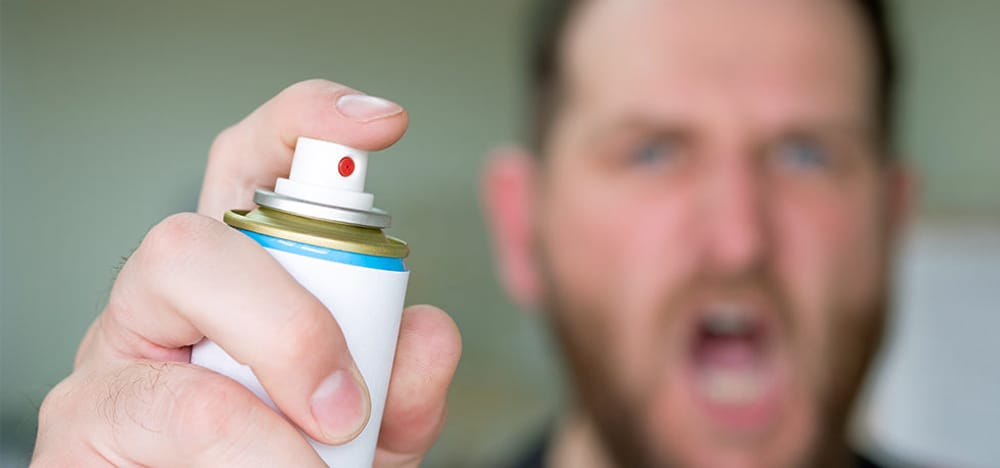Chemical sprays have been a part of the pest control armory for many years and will probably remain so, but they are often not the best choice. Though insecticides can be effective in killing pests there are disadvantages in their use and alternative methods may offer a better solution to destroying an infestation.
Nowhere is this more clearly seen than in the treatment of bed bugs. Traditionally, chemicals have been used to kill this common parasite but rarely is this the right choice to eradicate this bug.
Why are chemicals used?
Until relatively recently, the only way to kill bed bugs was to use an insecticide. After all, chemicals are sprayed routinely to protect crops and destroy many other pests. For many years, it was also the only available choice for those who wanted to treat the problem themselves. Fortunately, that is no longer true.
Why shouldn’t you use chemical sprays to treat bed bugs?
- The spray has to get to where the bugs are living. This means preparing the property is time-consuming and needs to be carried out carefully if the chemical treatment is to succeed – and it often doesn’t.
- Many over the counter chemicals labeled for bed bugs are highly repellant and will actually spread the infestation!
- Insecticides do not kill bed bug eggs. While spraying will destroy the adults and larvae the eggs will remain fertile and hatch out a few days later. So two or more applications are needed spread out over several weeks before eradication is complete.
- Bed bugs are showing signs of resistance to the many commonly used chemicals.
- It leaves behind a chemical residue, which isn’t exactly something you want to sleep on.
What alternatives are there to chemicals to treat bed bugs?
A Bedbug heat treatment is the superior way to treat bed bugs in any home or business. The process involves using special equipment to heat the temperature of the living space to between 122℉ and 125℉ for an hour or two thus killing the adults, larvae, and the eggs, no matter where in the building they are hiding.
Why should you use heat treatments to treat bed bugs?
- Just a single visit is required though there might be a follow-up inspections to make sure the problem has gone.
- You can return and sleep in the home that same night.
- Heat penetrates the entire home, killing bed bugs wherever they are hiding.
- All stages of the bed bug’s life cycle are destroyed, eggs included.
- Bed bugs can’t become resistant to heat.
- You don’t leave behind a chemical residue.
- It’s more eco-friendly.
- There’s no risk of chemicals harming you, your family, or your pets.
There is no doubt that heat treatments done correctly are superior to chemical spraying in the removal of a bed bug infestation. It is quicker, less invasive, and can easily wipe out an infestation without putting your health at risk. It’s now extremely affordable and easy to buy a heat treatment package to treat your own home – to find out more about how you can treat the bed bugs in your home, click here.

